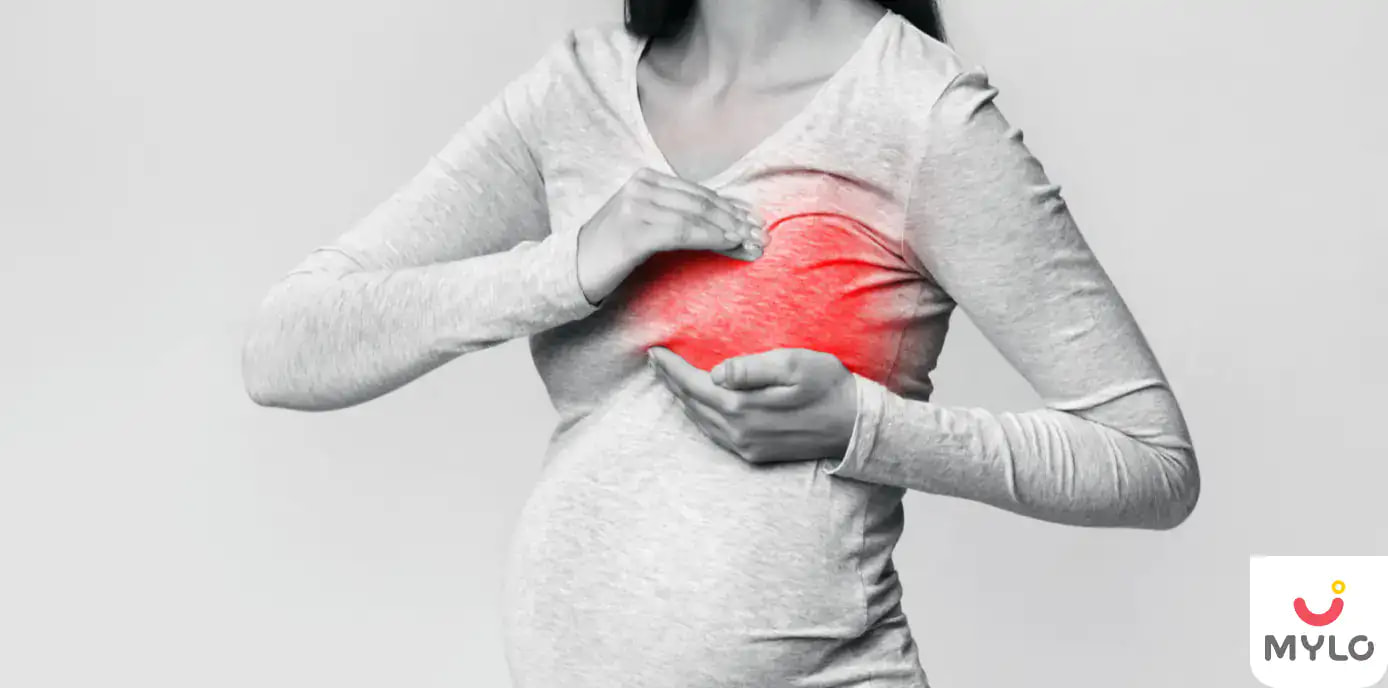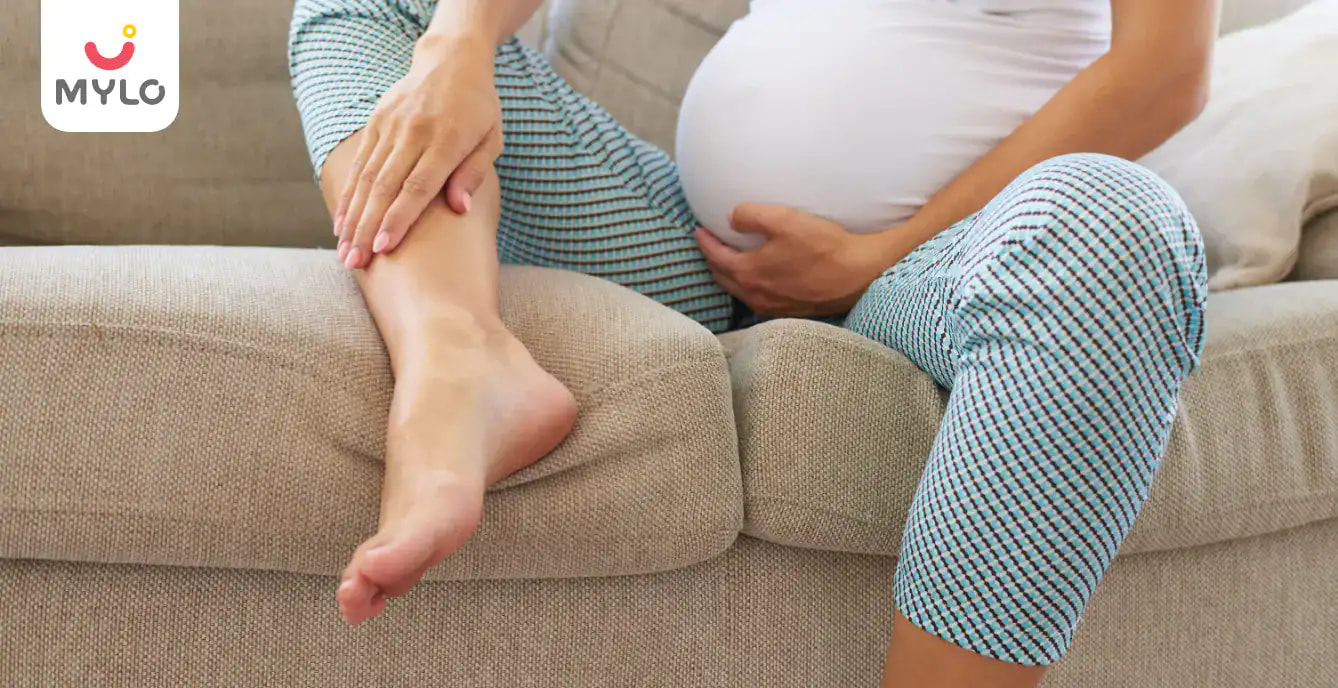Home

Abortion

Is Breast Pain after Abortion Normal? What You Need to Know
In this Article
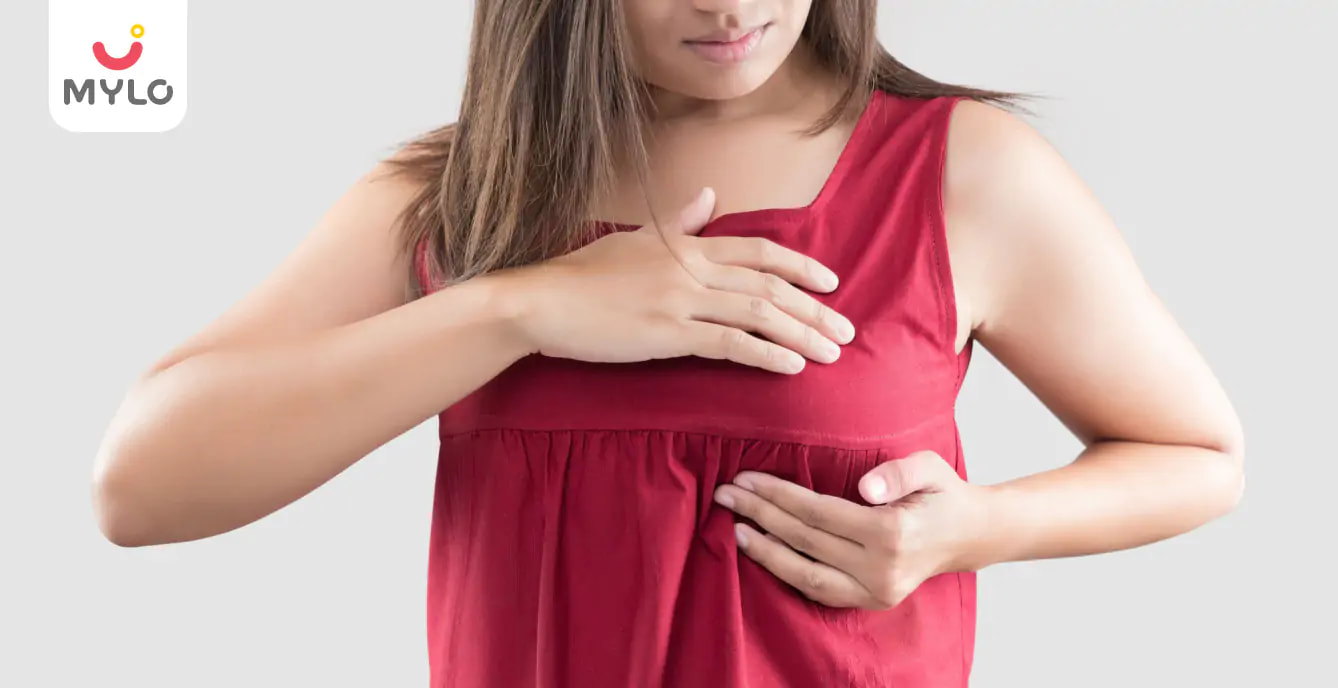
Abortion
Is Breast Pain after Abortion Normal? What You Need to Know
Updated on 23 February 2024



Medically Reviewed by
Dr. Shruti Tanwar
C-section & gynae problems - MBBS| MS (OBS & Gynae)
View Profile

The decision to have an abortion is never an easy one. It's a deeply personal and emotional journey that can leave a lasting impact on a woman's life. While the physical pain and discomfort of the procedure may fade with time, the emotional pain can linger for years. And for some women, the pain doesn't end there. Breast pain after abortion is a common symptom that can be both physically and emotionally draining.
In this article, we'll understand if it is normal to experience such a pain, its causes, how long does breast pain last after abortion and effective pain relief methods.
Is Breast Pain Normal After Abortion?
Breast pain after abortion is a common concern for many women. It is important to understand that experiencing breast pain after an abortion is generally considered normal. The hormonal changes that occur during pregnancy and then the sudden cessation of those hormones after an abortion can cause breast pain and tenderness.
During pregnancy, the body produces high levels of hormones, such as estrogen and progesterone, which prepare the breasts for lactation. However, when an abortion occurs, these hormone levels drop rapidly, leading to changes in breast tissue and potentially causing pain. If the pregnancy was more advanced, the breasts may feel tense and sore for a while after the termination.
Another factor that can contribute to breast pain after an abortion is the psychological and emotional impact of the procedure. The decision to have an abortion can be emotionally challenging, and the stress and anxiety associated with the experience may manifest physically as breast pain.
How Long Does Breast Pain Last After Abortion?
Breast pain after an abortion may last for about a week or two. The pain can range from mild to severe, and it is more common if the abortion was done through medication. However, if the pain persists beyond this timeframe, it could be a sign of an ectopic pregnancy, and you should consult a healthcare provider immediately.
It is also important to note that breast tenderness and swelling can increase if you return to increased activity, such as going back to work. It is advisable to take proper self-care and seek medical attention if the pain is severe or persists beyond two weeks after an abortion.
You may also like: After-Abortion Sex: A Guide to Physical and Emotional Wellness
What are Some Other Pains One May Experience After Abortion?
In addition to breast pain, women may experience other types of pain after an abortion. These include pelvic pain, abdominal pain, back pain, and lower back pain. It is crucial to understand the possible causes of these pains and when to seek medical attention.
1. Pelvic pain after abortion
Pelvic pain after an abortion can occur due to a variety of reasons. It may be a result of the uterus contracting and returning to its pre-pregnancy size. In some cases, it could indicate an infection or other complications. If the pelvic pain is severe, persistent, or accompanied by other concerning symptoms, it is essential to consult a healthcare professional.
2. Abdominal pain after abortion
Abdominal pain after an abortion is another common symptom. Similar to pelvic pain, it can be caused by the uterus contracting. However, if the pain is severe, accompanied by heavy bleeding or fever, it may indicate an infection or other complications. Seeking medical advice is crucial in such cases.
3. Back pain after abortion
Back pain after an abortion can be attributed to the physical strain that the body goes through during the procedure. Additionally, hormonal changes can also affect the muscles and ligaments in the back, leading to discomfort. If the back pain becomes severe or persists for an extended period, it is advisable to consult a healthcare professional for further evaluation.
4. Lower back pain after abortion
Lower back pain after medical abortion can be a side effect of the medication used during the procedure. The medication can cause uterine contractions, which can lead to lower back pain. It is important to follow the prescribed medication regimen and consult a healthcare professional if the pain becomes severe or persists.
You may also like: How Soon After an Abortion Can You Get Pregnant?
Taking Care of Breast Pain
Below are some of the most effective methods to help ease breast pain after abortion:
1. Applying an NSAID topical cream for pain relief
Nonsteroidal Anti-Inflammatory Drugs (NSAIDs) are one of the most common forms of pain relief for pain after abortion. Examples of NSAIDs include ibuprofen, naproxen and aspirin. These medications work by reducing inflammation, which can help reduce pain. It's important to read the instructions carefully before taking any NSAIDs, and one must consult their doctor with their concerns or questions.
2. To support your breasts, put on a cotton bra that fits you properly
Women's breasts can be tender after an abortion, so it's essential to wear a bra that provides support and comfort. Cotton bras are the most recommended for this purpose, providing the most breathable fabric and comfort.
3. Utilize relaxation techniques to lessen anxiety caused by discomfort
Relaxation techniques, such as yoga and meditation, can help reduce the stress and anxiety associated with breast pain after an abortion. These activities can help to reduce pain and restore balance in the body. Additionally, one can combine these techniques with other pain relief methods for greater effectiveness.
4. Switch your diet to one that is high in fibre
To alleviate breast tenderness, it's advisable to consume a diet rich in whole grains, vegetables, and beans while minimizing animal fat intake. Such a diet enables your body to efficiently break down the surplus estrogen it produces. The quicker the excess estrogen is metabolized, the faster the breast tenderness will diminish.
5. Consume foods high in vitamins B and C, calcium and magnesium
Consuming these vitamins can aid in regulating the hormone prolactin, which is produced during pregnancy to prepare breasts for lactation. By including these vitamins in your diet, you can support the regulation of prolactin and help restore your body's natural balance. Examples of such foods include oranges, spinach, broccoli, almonds, oats, and fortified cereals.
6. For two weeks, take a vitamin E supplement
Vitamin E has been found to reduce pain and discomfort in the breasts after an abortion. Taking a Vitamin E supplement for two weeks may help reduce the swelling and pain associated with the procedure. It is advised that a woman should speak to her doctor before taking any supplements, as there may be potential side effects or interactions with other medications.
You may also like: How Does an Abortion Affect the Chances of Getting Pregnant Again?
7. Include Omega-3 fatty acids in your diet
Eating foods rich in omega-3 fatty acids, such as salmon, flaxseed and walnuts, can help reduce inflammation, pain, and swelling in the breasts. Additionally, omega-3 fatty acids help to promote skin health and may also help to reduce cramping, which is common after an abortion.
8. Take primrose oil supplements as an alternative
Primrose oil is a natural anti-inflammatory that can help reduce breast inflammation and pain after an abortion. Taking primrose oil supplements for two weeks may help reduce swelling, pain and discomfort associated with the procedure.
9. To reduce discomfort, avoid caffeine and nicotine
Avoiding caffeine and nicotine can be beneficial for reducing the discomfort associated with breast pain after an abortion. Both of these substances are stimulants, which can increase anxiety and alertness, making it difficult to relax and reduce pain.
10. Minimize sodium intake to reduce swelling
Consuming a diet high in salt can result in water retention, exacerbating swelling in already tender breast tissue. To alleviate this, it is recommended to reduce your intake of salt by avoiding heavily processed foods, fast food, and table salt for a period of two weeks to allow your body to adjust.
You may also like: 8 Steps to Help You Recover Emotionally from the Loss of Your Baby
Closing Thoughts
In conclusion, breast pain after abortion can be a difficult experience to go through. It can be emotionally and physically painful, but there are ways to alleviate the discomfort. Whether it's through the use of pain relief medications or natural remedies, it's important to take care of yourself and seek medical attention if the pain persists. Remember, you are not alone in this experience, and there is no shame in seeking help. Take the time to heal and be kind to yourself.
References
1. Nyboe Andersen A, Damm P, Tabor A, Pedersen IM, Harring M. (1990). Prevention of breast pain and milk secretion with bromocriptine after second-trimester abortion. Acta Obstet Gynecol Scand.
2. Beaman J, Prifti C, Schwarz EB, Sobota M. (2020). Medication to Manage Abortion and Miscarriage. J Gen Intern Med.
3. Sereshti M, Nahidi F, Simbar M, Bakhtiari M, Zayeri F. (2016). An Exploration of the Maternal Experiences of Breast Engorgement and Milk Leakage after Perinatal Loss. Glob J Health Sci.
Tags
Breast Pain after Abortion in Hindi, Breast Pain After Abortion in Tamil, Breast Pain After Abortion in Telugu, Breast Pain After Abortion in Bengali





Medically Reviewed by
Dr. Shruti Tanwar
C-section & gynae problems - MBBS| MS (OBS & Gynae)
View Profile


Written by
Charu Pratap
Charu has been a seasoned corporate professional with over a decade of experience in Human Resource Management. She has managed the HR function for start-ups as well as established companies. But aside from her corporate career she was always fond of doing things with a creative streak. She enjoys gardening and writing and is an experienced content expert and linguist. Her own experiences with motherhood and raising a baby made her realize the importance of reliable and fact-based parenting information. She was engaged in creating content for publishing houses, research scholars, corporates as well as for her own blog.
Read MoreGet baby's diet chart, and growth tips

Related Articles
Related Questions
Influenza and boostrix injection kisiko laga hai kya 8 month pregnancy me and q lagta hai ye plz reply me

Hai.... My last period was in feb 24. I tested in 40 th day morning 3:30 .. That is faint line .. I conculed mylo thz app also.... And I asked tha dr wait for 3 to 5 days ... Im also waiting ... Then I test today 4:15 test is sooooo faint ... And I feel in ma body no pregnancy symptoms. What can I do .

Baby kicks KB Marta hai Plz tell mi

PCOD kya hota hai

How to detect pcos

RECENTLY PUBLISHED ARTICLES
our most recent articles
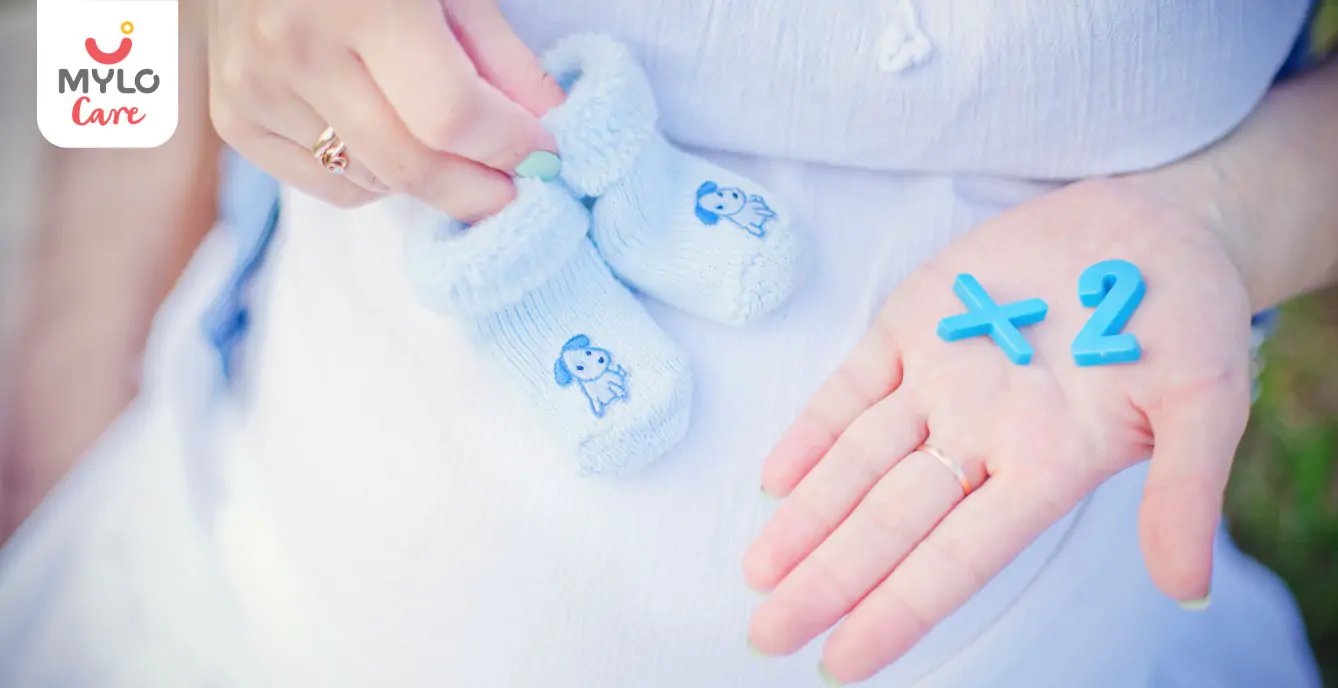
Twins & Triplets
Twin Pregnancy: Signs, Types & Risks

Women Specific Issues
Chasteberry Benefits: The Natural Remedy You Need for Infertility, Hormonal Imbalance, and PMS

Baby Shower
The Ultimate Guide to Planning the Perfect Baby Shower

Announcements & Celebrations
50+ New Born Baby Wishes to Congratulate New Parents
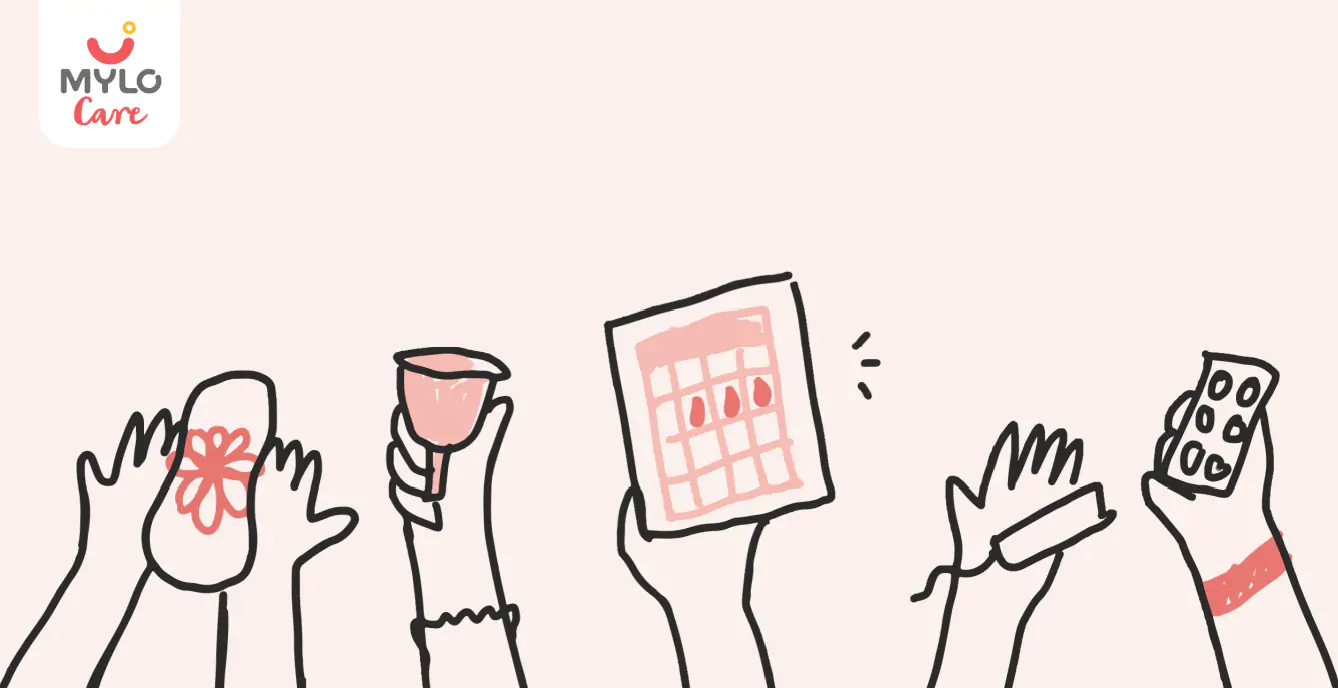
Menstrual Cycle
First Period After C Section: How Long Does It Last
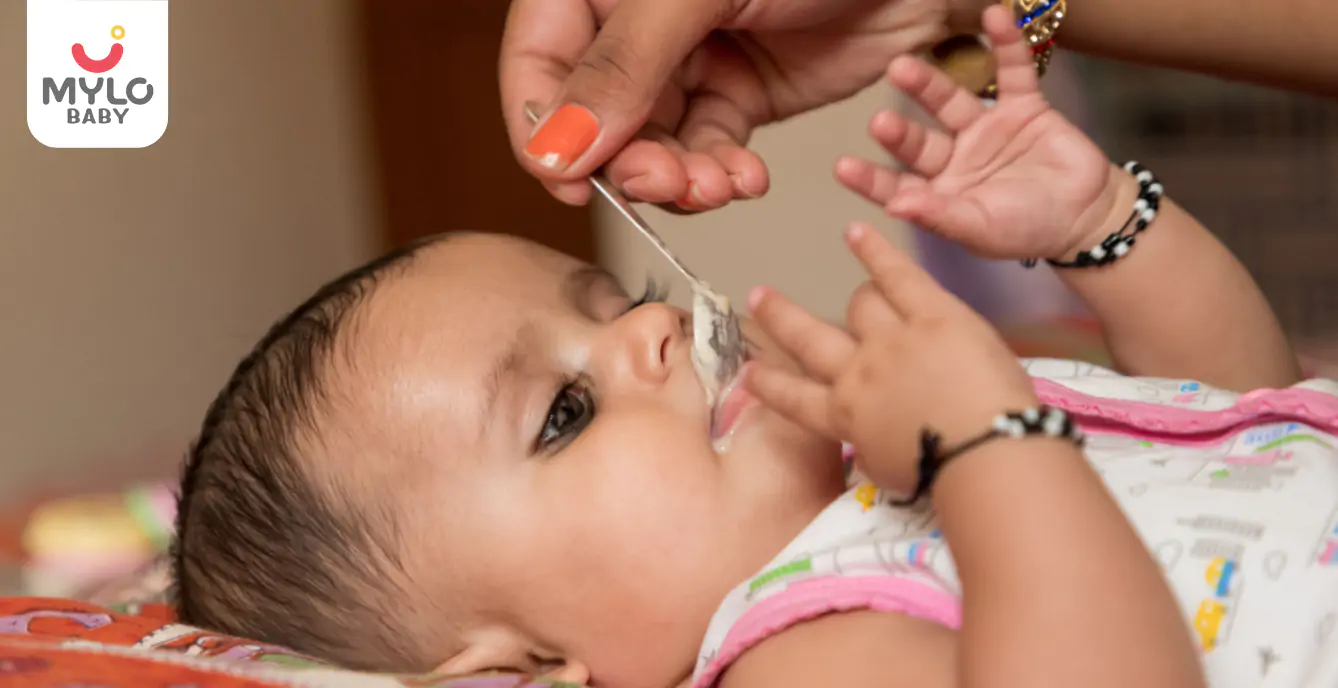
Introducing Solid Foods to your 6-month-old Baby? Here is a complete Food Chart along with some Nutritious Recipes
- What to expect about the height/length of 6 months old?
- The Development of Your Kid at the Age of Four Months
- Burping Your Baby
- What Is the Significance of Motor Skills in Children & How to Develop Them?
- The Ultimate Guide to Formula Milk: Everything You Need to Know
- Are baby monitors safe or dangerous for your little ones? How to protect your baby from EMF Radiations?
- Here’s a List of a Lot of Things That You Need to Know When Your Baby Starts Rolling Over
- How to Travel Around the World Stress-Free With Your Baby?
- গর্ভবতী হওয়ার জন্য প্রধান 10টি যৌন অবস্থান: গর্ভধারণের চেষ্টাকারী দম্পতিদের জন্য আলোচনা | Top 10 Sex Positions to Get Pregnant: The Ultimate Guide for Couples Trying to Conceive in Bengali
- Welcoming New Born Baby Quotes to Celebrate Life's Greatest Gift
- It's a Baby Girl! 50+ Ideas for Announcing Your Daughter's Birth
- Never Miss These Crucial Warning Signs of Emotional Development Problems in Your Baby
- The Ultimate Guide to Using Almond Oil for Baby Massage
- An ultimate guide about health, growth, and care for a 7-weeks-old baby


AWARDS AND RECOGNITION

Mylo wins Forbes D2C Disruptor award

Mylo wins The Economic Times Promising Brands 2022
AS SEEN IN

- Mylo Care: Effective and science-backed personal care and wellness solutions for a joyful you.
- Mylo Baby: Science-backed, gentle and effective personal care & hygiene range for your little one.
- Mylo Community: Trusted and empathetic community of 10mn+ parents and experts.
Product Categories
Baby Carrier | Baby Soap | Baby Wipes | Stretch Marks Cream | Baby Cream | Baby Shampoo | Baby Massage Oil | Baby Hair Oil | Stretch Marks Oil | Baby Body Wash | Baby Powder | Baby Lotion | Diaper Rash Cream | Newborn Diapers | Teether | Baby Kajal | Baby Diapers Pants | Cloth Diapers | Laundry Detergent | Lactation Granules |



